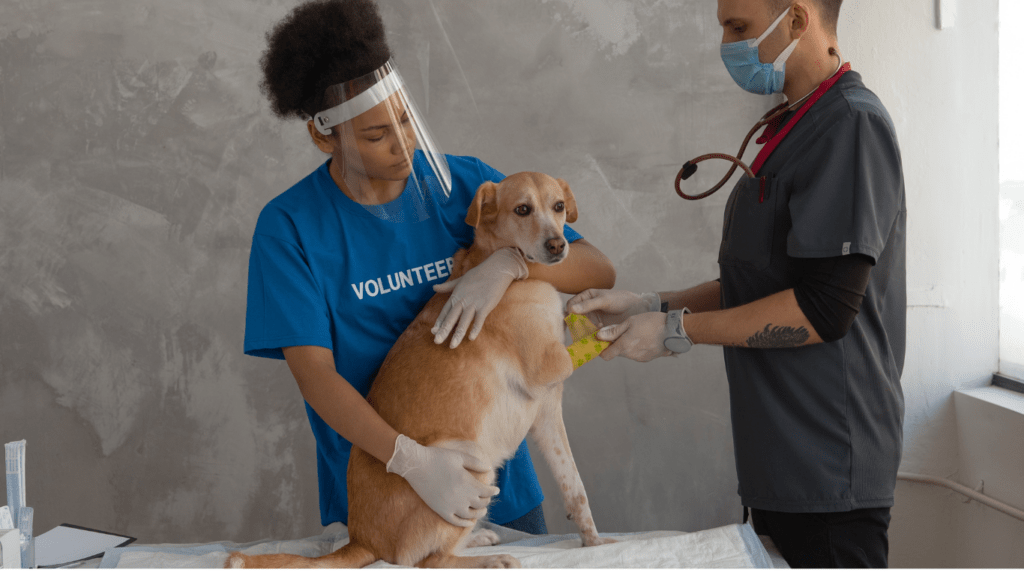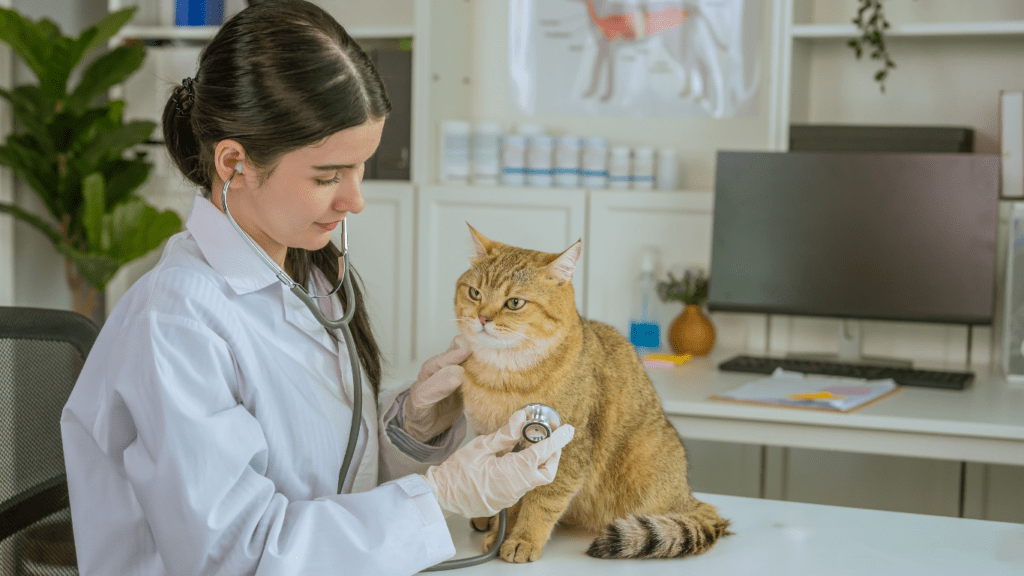Understanding the Importance of Regular Vet Visits
Regular vet visits ensure pets stay healthy and catch potential issues early. Bringing pets in for routine exams helps identify diseases in their early stages, when treatment is more effective and less costly. Early detection of conditions like:
- diabetes
- kidney disease
- dental issues
can dramatically improve a pet’s quality of life.
Preventative care is another crucial aspect of these visits. Vets administer vaccinations, perform parasite control, and give nutritional advice tailored to each pet’s needs. This proactive approach helps prevent many common health problems, saving pet owners stress and expense.
Vets also provide valuable guidance on pet behavior and training. Addressing behavioral issues early can prevent them from becoming serious problems. During these visits, vets can recommend strategies or refer pets to specialists, ensuring they receive comprehensive care.
Pets age faster than humans, making regular check-ups even more important. Senior pets need more frequent visits to monitor age-related conditions. By adjusting care as pets grow older, vets help manage health changes and maintain a good quality of life.
Routine check-ups also strengthen the bond between pet and owner. Understanding a pet’s health allows owners to make informed decisions, providing peace of mind. Preventative and early intervention strategies foster a long, healthy, and happy life for pets.
Benefits of Early Detection and Prevention

Regular vet visits provide critical advantages in preventing and identifying health issues early, ensuring pets live healthier lives.
Disease Prevention
These visits focus on preventing diseases. Vets conduct thorough exams, identifying risk factors for illnesses such as kidney disease or diabetes. They provide guidance on dental care, recommend suitable diets, and advise on exercise routines to maintain overall health. Detecting potential issues early on helps prevent serious complications.
Early Diagnosis
Early diagnosis is a primary benefit of routine check-ups. Vets can spot symptoms of common health problems like heart disease or cancer before they become severe. Blood tests, X-rays, and ultrasounds offer detailed insights into a pet’s condition. For instance, discovering heart murmurs or abnormal liver enzymes early supports timely intervention and treatment.
Vaccinations and Preventive Care
- Routine visits include vaccinations and preventive care.
- Core vaccines protect against diseases such as rabies, distemper, and parvovirus.
- Vets also administer non-core vaccines based on a pet’s lifestyle and environment.
- Preventive care extends to parasite control, including flea, tick, and heartworm prevention, which significantly reduces the risk of infestations and associated diseases.
Enhancing Your Pet’s Quality of Life
Regular vet visits play a crucial role in enhancing your pet’s quality of life. They ensure early detection of health issues, behavioral changes, and nutritional needs.
Monitoring Overall Health
Regular check-ups monitor your pet’s overall health, identifying issues early. Vet exams include physical assessments of skin, coat, teeth, and eyes, detecting abnormalities. Blood tests screen for diseases like diabetes or kidney problems. Early detection allows for more effective treatment and management, extending your pet’s lifespan.
Behavioral Assessments
Behavioral assessments identify changes in your pet’s behavior that may indicate underlying health issues. Vets observe for signs of anxiety, aggression, or lethargy, which could be symptoms of pain or illness. Addressing these issues promptly ensures your pet maintains a healthy and happy demeanor.
Nutrition and Weight Management
Proper nutrition and weight management are critical for your pet’s health. Vets provide guidance on balanced diets, ensuring your pet receives necessary nutrients. Regular visits include weight checks to prevent obesity, which can lead to diabetes or joint problems. Tailored dietary recommendations help maintain optimal health and energy levels.
Common Myths About Vet Visits
Many people have misconceptions about vet visits, which can lead them to avoid these important check-ups. Let’s debunk some common myths.
Cost Concerns
Many pet owners believe that vet visits are too expensive. In reality, regular vet visits can save money. By identifying health issues early, treatment is less costly and more effective. For example, treating advanced dental disease can be more expensive than preventive cleanings. Also, vaccinations, which are part of regular visits, prevent costly diseases like parvovirus in dogs. Pet insurance can also help manage costs.
Stress on Pets
Some believe that vet visits are overly stressful for pets. While it’s true that some pets may feel anxious, many vet clinics take steps to minimize this stress. Clinics often have separate waiting areas for cats and dogs, use calming pheromones, and offer fear-free handling techniques. Regular visits help pets become accustomed to the environment, making future visits less stressful. Owners can also prepare by bringing familiar items, like a favorite toy or blanket, to comfort their pets.
Tips for Making Vet Visits Easier
Making vet visits less stressful can benefit both you and your pet. Here are some practical tips to ensure smoother visits.
Choosing the Right Vet
Selecting the right vet plays a crucial role. Look for a veterinarian with a balanced approach to pet care, ensuring they can meet your pet’s specific needs. Evaluate the vet’s credentials, location, and reviews from other pet owners. A convenient location can reduce travel stress, and positive reviews can provide insights into the vet’s reliability and the clinic’s atmosphere.
Preparing Your Pet
Preparation can ease your pet’s anxiety. Acclimate your pet to car rides by taking short trips leading up to the vet visit. Use a comfortable carrier with familiar items inside, like a favorite blanket. Schedule the appointment at a time when the clinic is less crowded to minimize waiting time. Bring treats to reward good behavior, making the experience more positive for your pet.




